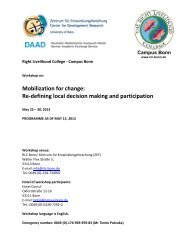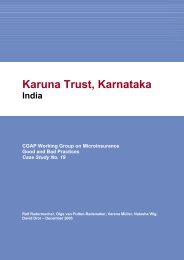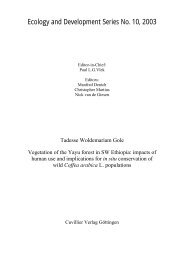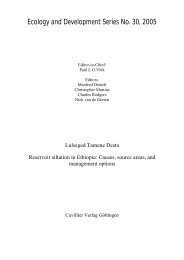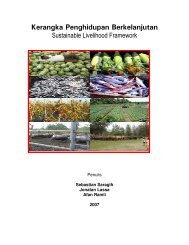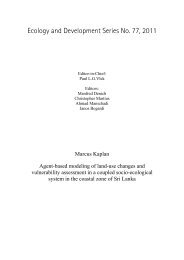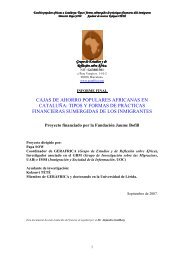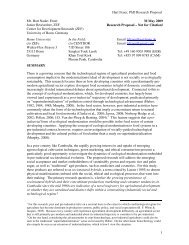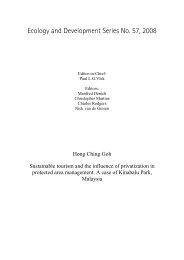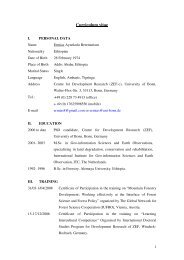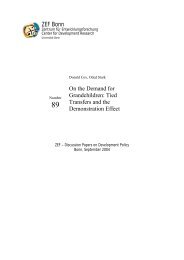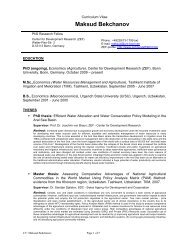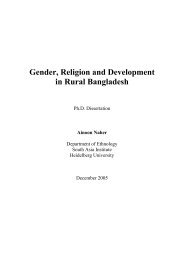Download - ZEF
Download - ZEF
Download - ZEF
- No tags were found...
You also want an ePaper? Increase the reach of your titles
YUMPU automatically turns print PDFs into web optimized ePapers that Google loves.
<strong>ZEF</strong> Policy Brief No. 7tions on their liberty to act, they lackresources and capacities which they thenseek in a competitive market for internationaldonor sponsorship.This competition between Ethiopian civilsociety organizations for internationaldonor support, among coffee companies inthe wild forest coffee niche market and thestruggle for mandates among nationalauthorities and international donor agenciesis a contest which does not lead to collectiveaction and cooperation to promoteconservation. The lack of a national forestpolicy in Ethiopia does not make things anyeasier.To conclude, the reasons for deforestation inEthiopia are plenty and complex and it isnot possible to single out one particularreason. Few people are showing concernabout deforestation in Ethiopia and theimpact of their concern and true commitmentto act upon it are insufficient to haltdeforestation. In order to cope with the difficulttask, the government needs to devolveauthority and assign resources for tacklingdeforestation. More is needed than administrativedecentralization. Rights andresponsibilities need to be passed on toresource users and civil society organizations– not only to international donoragencies. The capacities of governmentaland Ethiopian civil society organizationsneed to be strengthened with support fromthe international development agenciesand, specifically for the coffee forests, fromthe coffee industry itself. This process cannotbe prescribed from the top – it needs tobe called for by the public. If nobody knowsabout the threatened rainforests inEthiopia, nobody will act. Therefore, investmentsin environmental education, communication,public awareness building and civilsociety organizations need to be encouraged.The commitment of the worldwidecoffee industry to conserving the foresthabitats of wild Coffea arabica populationsin Ethiopia is negligible. As wild Coffea arabicais the source of one of the world’s mostimportant industries, it goes without sayingthat wild coffee conservation should take avery prominent place on the agenda forsocial corporate responsibility.AcknowledgementsMost of the results presented are based onthe work of the CoCE Project members andcollaborators. CoCE is carried out by <strong>ZEF</strong>Bonn and receives financial support fromthe German Federal Ministry of Educationand Research (BMBF).For references, please contact the authorFranz Gatzweiler (fgatz@uni-bonn.de).<strong>ZEF</strong> Policy BriefFor the purpose of applied researchthe <strong>ZEF</strong> Policy Briefs mainly addressdecision makers and practitioners ofdevelopment cooperation withpointed comments on current andemerging topics. The <strong>ZEF</strong> PolicyBriefs are published sporadically.They are complementary to <strong>ZEF</strong>’smore extensive Discussion Papersthat intend to stimulate discussionamong researchers and practitioners.7



